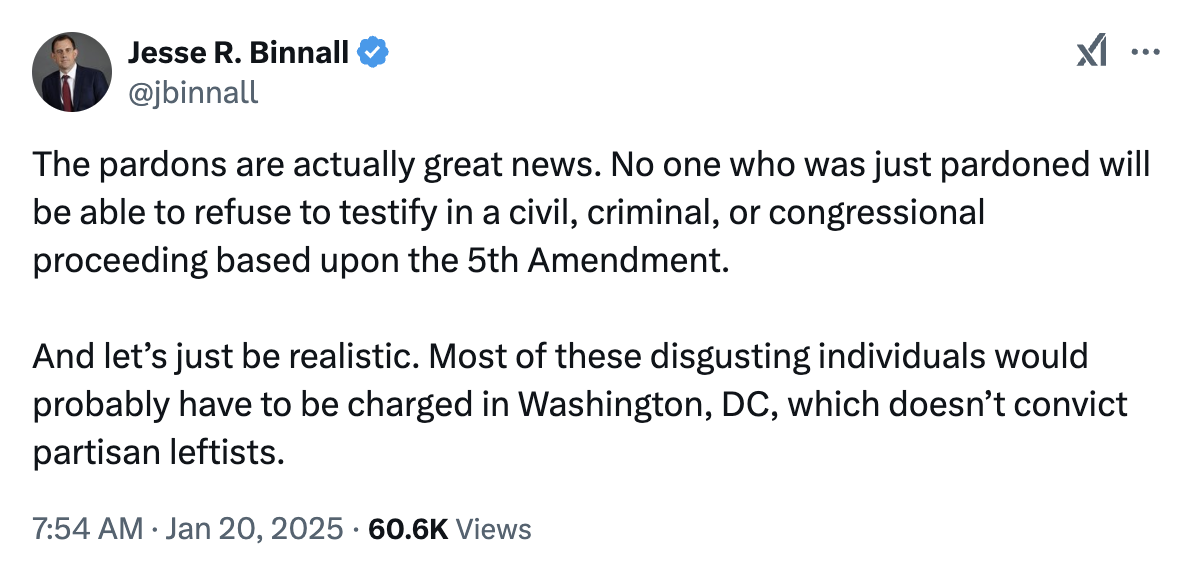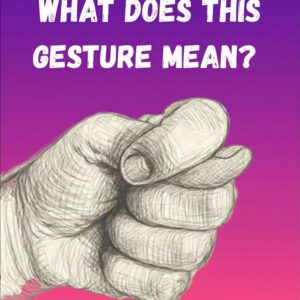A round of last-minute pardons by President Joe Biden meant to thwart reprisals by President-elect Donald Trump is not all good news for the fortunate sons and daughters of his administration.
Liz Cheney and Dr. Anthony Fauci are among a limited list of presidential pardon recipients, a gesture aides to Biden say is meant to blunt any act of vengeance by Trump or members of his incoming administration. However, legal observers quickly noted that the distinguished designations would not prevent either Trump foe from having to answer questions under oath.
If they wish, U.S. House or Senate Republicans may subpoena Cheney, Fauci, Hunter Biden, or anyone else they believe could shed light on potential transgressions by the Biden-Harris administration. It’s uncertain if GOP lawmakers plan to continue their investigations into the Biden family and its business dealings, but if they do, the aforementioned few would likely be included on a congressional witness list.
Jesse Binnall, a federal litigation attorney, first noted that Biden’s pardons will not protect Cheney or Fauci if they lie under oath. Put another way, the pardons represent “great news” for those looking to see both individuals prosecuted.
“The pardons are actually great news. No one who was just pardoned will be able to refuse to testify in a civil, criminal, or congressional proceeding based upon the 5th Amendment,” Binnall wrote on X. “And let’s just be realistic. Most of these disgusting individuals would probably have to be charged in Washington, DC, which doesn’t convict partisan leftists.”

Protections under the Constitution’s 5th Amendment afford individuals the right against self-incrimination; but the blanket amnesty offered by a presidential pardon negates that need. If Reps. Jim Jordan (R-OH) or James Comer (R-KY) chose to use their committee powers to question Cheney about the J6 committee, for example, she would ostensibly be compelled to answer honestly about whether, for example, she suppressed evidence exonerating Trump or pressured witnesses to change their testimony.
Dr. Fauci, meanwhile, may be forced to speak candidly about whether he sought to undermine any of President-elect Trump’s directives during the pandemic. During the summer of 2020, the coronavirus expert began to rebuke some of Trump’s statements about the pandemic, at one point saying his public comments were “not helpful” to the cause of “flattening the curve.”
Other recipients of the Sunday night pardons were General Mark Milley, the former Trump military advisor who later criticized him, and all other members of the J6 committee.
“I believe in the rule of law, and I am optimistic that the strength of our legal institutions will ultimately prevail over politics,” Mr. Biden said in a statement. “But these are exceptional circumstances, and I cannot in good conscience do nothing. Baseless and politically motivated investigations wreak havoc on the lives, safety and financial security of targeted individuals and their families.”
“Even when individuals have done nothing wrong — and in fact have done the right thing — and will ultimately be exonerated, the mere fact of being investigated or prosecuted can irreparably damage reputations and finances,” he added.
Accepting the pardon, however, isn’t always the best idea when it comes to the court of public opinion, others said.
“As soon as you take a pardon, it looks like you are guilty of something,” former Representative Adam Kinzinger told CNN earlier this month.





